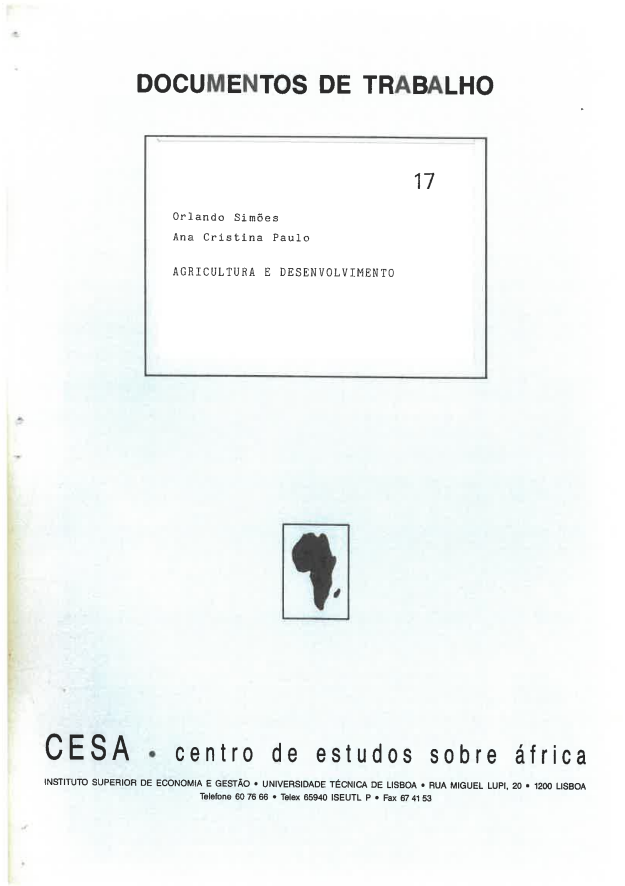Working Paper 17/1989: Agricultura e desenvolvimento

Title: Working Paper 17/1989: Agricultura e desenvolvimento
Author(s): Simões, Orlando; Paulo, Ana Cristina
Publication Date: 1989
Publisher: ISEG - CEsA
Quotation: Simões, Orlando e Ana Cristina Paulo .1989. “Agricultura e desenvolvimento” . Instituto Superior de Economia e Gestão. CEsA - Documentos de Trabalho nº 17/1989.
Abstract: The policy followed in the introduction of biotechnologies in developing countries during the last decades has closely followed the evolution of concepts and theories on the problem of development. Faced with the food shortage of developing countries created by the population explosion from a more effective control of mortality, especially infant mortality, the need was felt to rapidly increase food production in those countries. In a first phase of what became known as the "Green Revolution", there was an intensification of the agri-food sector of some developing countries, namely in Asia and Latin America. This intensification was based on the massive importation of technology, inputs and know-how from the most industrialized countries, using new high-yield cereal varieties obtained by crossing, hybridization and artificial pollination techniques. The policy followed was in agreement with the concepts of development then dominant and based on the "conventional paradigm" (isolation of the economic dimension and universality of the pattern of development), advocating rapid economic growth following the model of industrialized countries. In the development programs supported by the IMF and World Bank, the role of these institutions is important not only for their financing capacity, but also for the agreements signed with the governments of the PVD's for which these programs are intended, giving confidence to the private international financial institutions that can thus participate in these programs.
Identifier: http://hdl.handle.net/10400.5/24178
Category: Working paper
Abstract:
In Agricultura e Desenvolvimento we study how the policy followed in the introduction of biotechnologies in developing countries during the last decades has closely followed the evolution of concepts and theories on the problem of development. Faced with the food shortage of developing countries created by the population explosion from a more effective control of mortality, especially infant mortality, the need was felt to rapidly increase food production in those countries. In a first phase of what became known as the “Green Revolution”, there was an intensification of the agri-food sector of some developing countries, namely in Asia and Latin America. This intensification was based on the massive importation of technology, inputs and know-how from the most industrialized countries, using new high-yield cereal varieties obtained by crossing, hybridization and artificial pollination techniques. The policy followed was in agreement with the concepts of development then dominant and based on the “conventional paradigm” (isolation of the economic dimension and universality of the pattern of development), advocating rapid economic growth following the model of industrialized countries. In the development programs supported by the IMF and World Bank, the role of these institutions is important not only for their financing capacity, but also for the agreements signed with the governments of the PVD’s for which these programs are intended, giving confidence to the private international financial institutions that can thus participate in these programs.
Quotation:
Simões, Orlando e Ana Cristina Paulo. 1989. “Agricultura e desenvolvimento” . Instituto Superior de Economia e Gestão. CEsA – Documentos de Trabalho nº 17/1989.





